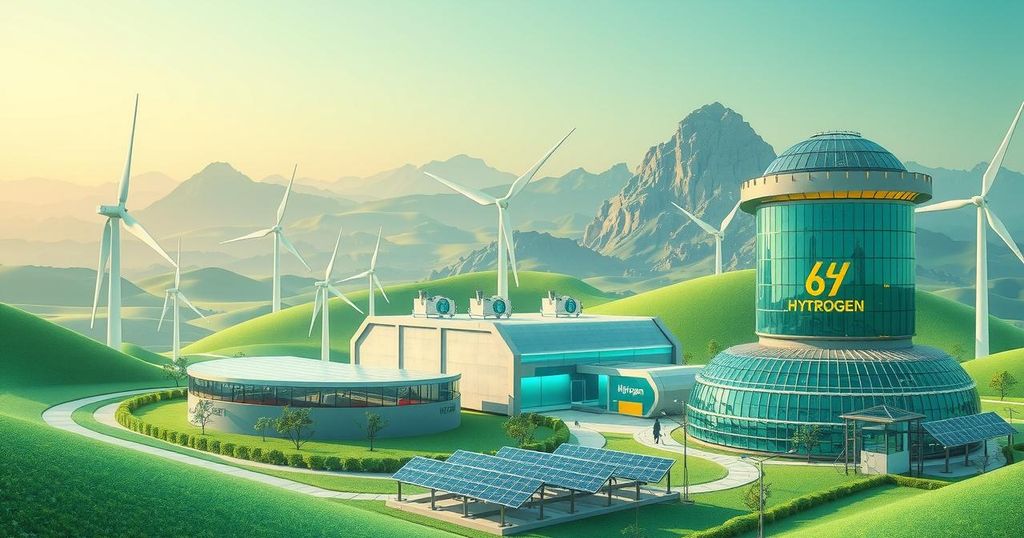China Surpasses Japan in Green Hydrogen Innovation and Patents

China has surpassed Japan in green hydrogen patents and innovation, according to a new report. Massive investments have fueled China’s hydrogen sector, pushing it ahead of Japan in several key areas, including production and transport. This shift raises concerns about potential global dominance in hydrogen-powered vehicles, prompting Japan to respond with subsidies and collaborations.
A recent report from Japanese research firm Astamuse indicates that China has surged ahead of Japan in the race for clean hydrogen innovation, especially in terms of patents. With significant backing from domestic investments, China’s hydrogen sector is rapidly advancing, overshadowing Japan’s traditional lead. In fact, Chinese companies now hold the record for the most low-carbon hydrogen patents worldwide. This shift could have significant implications, especially in the automotive sector where green hydrogen is seen as a potential fuel of the future, with industry leaders expressing concerns about China’s emerging dominance.
Astamuse’s analysis covers 180,000 green hydrogen patents filed between 2013 and 2022. It evaluates these patents based on five criteria: production, storage, transport and supply, safety management, and end use. The findings reveal that Chinese firms not only excel in competitiveness but lead in overall performance across the first four categories. Previously, a study of 140,000 patents from 2011 to 2020 showed Japan at the top, but a notable shift occurred after China announced its ambitious carbon peak targets in 2020. Since then, annual filings for green hydrogen patents in China have outpaced Japan two-fold.
In 2022, China launched a national hydrogen strategy that positioned hydrogen on par with renewable energy in terms of importance. The strategy outlined plans to boost annual green hydrogen production to between 100,000 and 200,000 tons by 2025—a target that has already been met ahead of schedule. Comparatively, although Japan had initiated its hydrogen strategy earlier, the rapid growth and investment in China have significantly accelerated its hydrogen sector’s development, leaving Japan at risk of falling further behind.
Moreover, the surge in patents has drastically reduced the costs associated with hydrogen production in China. These costs are currently just a quarter of what they are in Europe, which, in turn, has stimulated local demand. The International Energy Agency (IEA) reported that China is now the largest hydrogen market globally, accounting for 30% of the total demand.
Chinese solar companies are capitalizing on this momentum, with industry players like LONGi and Sungrow venturing into the hydrogen market. This expansion appears to be a strategic move to secure market share rather than immediate profits, as highlighted by Zhang Xiaoguang from Daiwa Research Institute. Such advancements could soon influence the hydrogen-powered vehicle landscape too, potentially giving Chinese firms a significant foothold.
Mitsumasa Yamagata, president of Toyota’s Hydrogen Business Unit, has remarked on the established hydrogen truck infrastructure in China, calling attention to the stark difference in hydrogen fuel costs: they are only one-third of those in Japan. If Japan and other countries do not augment their investments in hydrogen technology, it is feasible that China will control the hydrogen vehicle supply chain just as it has within the electric vehicle market.
In light of this competition, Japan is implementing measures to make hydrogen more attractive, including subsidies to mitigate cost differences with fossil fuels. Additionally, Japan is fostering collaborations with the United States and South Korea to advance hydrogen technologies. In parallel, the European Union is contemplating restricting the use of Chinese components in hydrogen projects to protect its domestic sectors.
In conclusion, China has successfully overtaken Japan in the realm of green hydrogen innovation, as evidenced by patents and robust investments. The implications for the global hydrogen supply chain, especially in vehicles, could be profound. Japan is currently trying to catch up by offering subsidies and collaborating with other nations. However, the rapid advancements made by Chinese companies, backed by significant investments, present ongoing challenges that could reshape the landscape in hydrogen energy.
Original Source: reccessary.com





